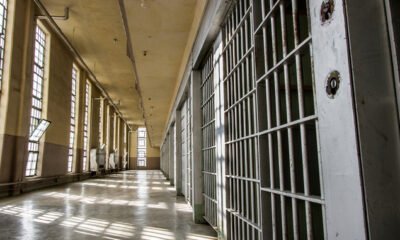history
Go Vote: The Urgent Call to Safeguard Our Democracy

Voting serves as a cornerstone of democracy, determining the trajectory of our society. It embodies the principle of accountability, allowing citizens to influence government actions through their choices. When we fail to exercise this right, we risk losing the very foundation that sustains our way of life.
The power of the U.S. presidency is unmatched globally, yet it operates within the confines of public scrutiny. Elected leaders maintain balance, navigating diverse interests and embodying the collective will of the American populace. However, the relationship between citizens and government often requires patience; meaningful changes occur incrementally.
At its core, the U.S. Constitution establishes a republic without a hereditary monarchy. This democratic framework ensures that the populace chooses representatives to govern on their behalf. Hence, participation in elections is not just a right—it’s a responsibility.
Consider elections a solemn ceremony. Candidates present their visions, seeking to resonate with the hopes and fears of the electorate. Voters respond quietly, casting their verdicts and collectively shaping the nation’s future.
This participatory process underpins the security and prosperity we enjoy. While businesses strive for fairness, the expectation is that the law protects all equally, preventing any one entity from monopolizing advantages. Such equity fosters economic growth, propelling wealth toward nations that uphold these principles.
Moreover, an effective military remains apolitical, its sole mission to safeguard the nation rather than engage in power struggles. This neutrality allows for a focus on defense, ensuring the nation’s stability.
Conversely, the erosion of democracy leads to a dangerous shift. Leaders may transform into rulers, establishing hierarchies where bolstering the powerful becomes paramount. Citizens could find themselves subservient to a regime that prioritizes loyalty over fairness.
The plight of nations experiencing oppressive governance—like Hungary or Venezuela—underscores the importance of democratic structures. Without active civic engagement, the landscape of power can shift dramatically, encumbering individual freedoms and opportunities.
In stark contrast, the United States represents a successful experiment in democracy. It thrives on the premise that leadership should emerge from the populace rather than a select few. This dynamic reinforces the significance of voting: it’s our means to hold authority accountable.
As election returns begin to roll in, it’s essential to scrutinize polling data carefully. While polls provide insights, they often reflect assumptions that can skew interpretations. A five-point lead, for instance, may not indicate a failure in polling but rather a reflection of the inherent uncertainties in electoral dynamics.
Polling numbers capture the essence of public sentiment but do not dictate outcomes with absolute certainty. Thus, predictions about margins should be approached with caution, understanding that history suggests variability in results. The essence of democracy lies in participation and vigilance; embracing this principle helps ensure its survival.
In closing, embrace your civic duty. Participate actively and help safeguard the principles of democracy that allow this nation to thrive.


















